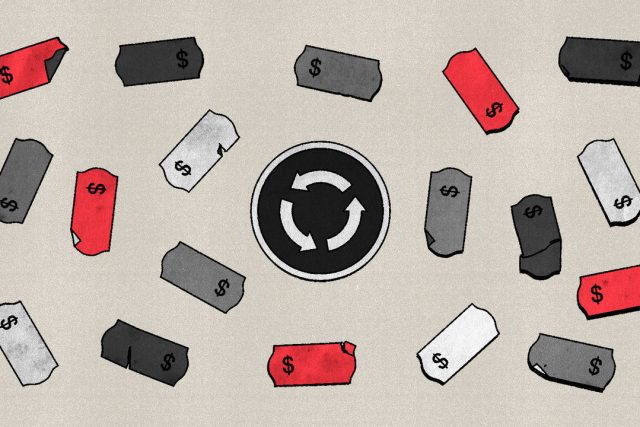Over the last decade, thousands of bank branches have closed their doors as an increasing amount of consumers adopt digital banking practices. Issues pertaining to access to cash have been often discussed, but problems appear to have gone even deeper. More than half of disabled bank customers have been negatively affected by branch closures, consumer champion Which? has revealed.
Financial firms and banks have a legal obligation under the Equality Act 2010 to remove barriers for disabled customers and ensure they are not excluded. The Financial Conduct Authority (FCA) also sets out guidelines for financial firms to follow when dealing with vulnerable customers, in an effort to ensure they experience outcomes as good as other consumers.
After surveying 2,723 bank customers with a disability or impairment, the consumer champion found that 52 per cent say that bank branch closures have had a negative impact on their ability to access vital banking services.
Anna Roughley, head of insight at the Lending Standards Board, explained the importance of ensuring all banking customers are included. Roughley said: “Our own research evidences inclusive design before a product or service has even taken shape, is critical. The move to digital provides opportunities for customers, but for some, they simply aren’t suitable.
“For example, there is an increased push for customers to interact through mobile phone banking apps, yet disabled people have been found to have lower smartphone ownership than the non-disabled. Ensuring a diverse range of viewpoints are engaged in the design and sign-off process, is the only way to properly assess the risks and opportunities and ensure no one is left behind”.
Consumers pick their best bank experiences
The consumer champion’s survey asked respondents to rank banks on five criteria: Online banking, mobile banking, telephone banking, branch banking and communications preferences.
Respondents’ likelihood to recommend and how currently satisfied they were with the service produced a Which? ‘Customer Score’.
First Direct emerged at the top of the consumer champion’s survey, with a customer score of 82 per cent. The firm scored a full five stars for its online banking services, yet most of the positive comments offered by respondents praised their telephone service.
Nationwide scored highest for branch banking and was the only firm to receive four stars for this category. The building society posted a score of 75 per cent, also receiving five stars for its online banking.
 Halifax, Santander and Lloyds finished third, fourth and fifth in the rankings, respectively. Halifax scored four stars for its online and mobile banking services, while Santander and Lloyds both posted impressive five-star ratings for online banking.
Halifax, Santander and Lloyds finished third, fourth and fifth in the rankings, respectively. Halifax scored four stars for its online and mobile banking services, while Santander and Lloyds both posted impressive five-star ratings for online banking.
However, Lloyds did score only two stars for its communications preferences – judged on how well they respect a customer’s preferred means of communication.
On the other end of the spectrum, Barclays (48 per cent) and TSB (47 per cent) finished bottom. Their automated phone systems were singled out as poor.
‘Alternative services often aren’t up to scratch’
Which?’s survey also found that alternatives put in place to fill gaps left by physical branches closing are not always up to the job. Thirty-five per cent of respondents said they find it fairly or very difficult to speak to their bank over the phone, while 21 per cent struggle with security features such as card readers or remembering passwords.
New security checks for online card payments, known as strong customer authentication, have also proved problematic for 39 per cent of respondents. Seventeen per cent of respondents said this was down to running out of time, while 14 per cent revealed they were not able to receive security codes due to poor mobile signal.
Which? also contacted a number of banks who admitted that the latest versions of their websites and apps had not been tested by disabled customers. These include: They include AIB (UK), Danske Bank, Revolut, Starling, The Co-operative Bank and Virgin Money. However, Starling did indicate that vulnerable consumer research is in progress.

Sam Richardson, deputy editor of Which? Money, further explained the significance of the findings: “Bank branch closures can have significant impacts on local communities and in particular those living with disabilities, who are among the most likely people in society to rely on both cash and in-person banking services.
“Which? believes that banks must consider the impact on disabled customers’ ability to access vital face-to-face banking services before they shut physical branches, as our research shows alternative services often aren’t up to scratch.
“With new Consumer Duty rules less than two months away, the regulator must not hesitate to take tough enforcement action against firms who fail to meet the required standards of customer care”.




The Most Read
Сryptocurrencies
Bitcoin and Altcoins Trading Near Make-or-Break Levels
Financial crimes
Thieves targeted crypto execs and threatened their families in wide-ranging scheme
Financial crimes
Visa Warning: Hackers Ramp Up Card Stealing Attacks At Gas Stations
News
Capitalism is having an identity crisis – but it is still the best system
Uncategorized
The 73-year-old Vietnamese refugee is responsible for bringing Sriracha to American consumers
Uncategorized
Electric Truckmaker Rivian, Backed By Amazon, Ford, Raises Whopping $1.3 Billion